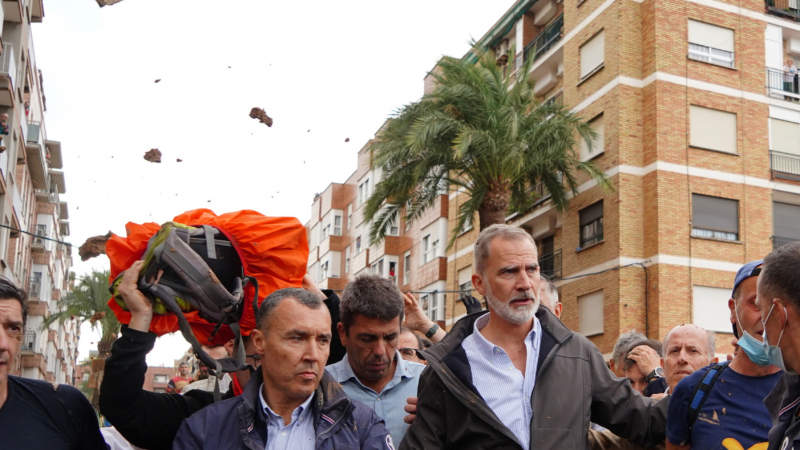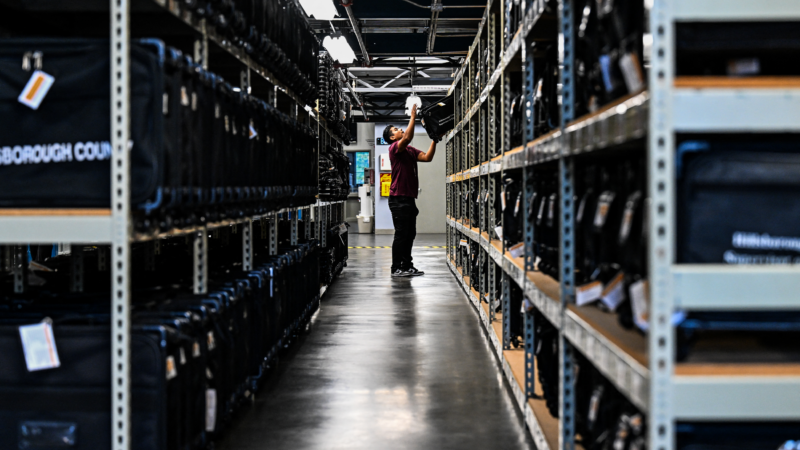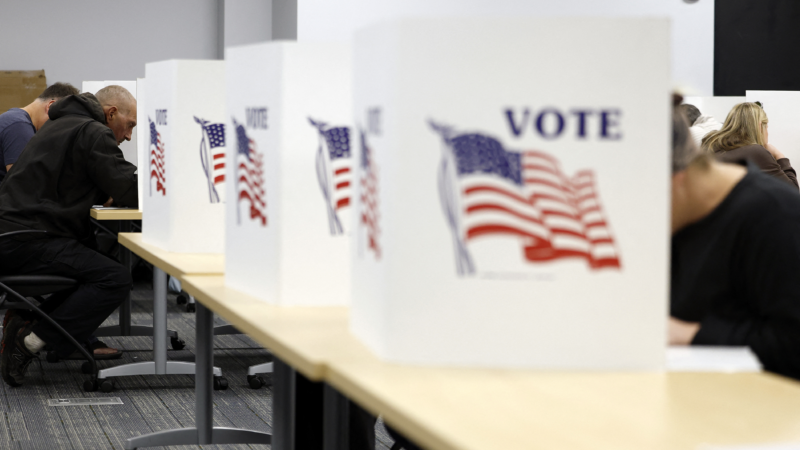The week of devastating floods that Spaniards will never forget
SEVILLE, Spain — Last weekend a remarkable scene played out in Paiporta, a town of about 25,000 and a suburb of the metropolis of Valencia on Spain’s eastern Mediterranean coastline. Citizens approached the royal couple, King Felipe VI and Queen Letizia, as they toured the damage from last week’s storms that left more than 200 dead.
One woman approached the queen, who looked distressed as protests were heard in the background as another person uploaded the scene onto social media. “Letizia, Doña Letizia,” the woman said to the queen, using the Spanish word of respect to the monarch, who had mud on her jacket. She held the woman’s hands.
Another man approached the royal couple and spoke to the king: “This government needs to go. Felipe, there are dead people out there, dude.”
Two days later, that scene is still reverberating across Spain; ordinary citizens aren’t usually allowed so close to the royal couple, let alone speak to them so informally. The exchange has become symbolic of the public anger here of the government’s response to the deadly storms. That public outrage has been growing in the towns devastated by the storm. But this past Sunday, public outrage spilled into public view.
The storm has now become the worst natural disaster in the country’s recent memory. At least 215 people are reported dead. There is still an unknown number of people missing, as rescuers work intensely to access all affected locations.

Who was behind the protests on Sunday?
During the monarchs’ visit to Paiporta, accompanied by Prime Minister Pedro Sánchez, as well as Carlos Mazón, the president of the autonomous government of the region of Valencia, altercations broke out. Some people threw mud at the government contingent, yelled at them, cursed them out, calling them “murderers,” urging them to leave the town immediately. Objects were also thrown, and a scene of chaos ensued.
What took place that morning is still unclear. Subsequent media reports are uncovering what might have been an organized effort by the far-right to sabotage the officials’ visit on Sunday. Online, far-right groups have claimed that they were able to hit Sánchez in the back and “destroy his car.” Some of those claims have been debunked, but on Monday the Spanish interior minister confirmed that at least one object hit Sánchez on Sunday. Observers say that what happened that day represents an escalation of the political polarization that is taking place in Spain, where the rise of the far-right Vox party in recent years has shaken up the two-party system.
On Sunday, after Sánchez was rushed away by his security detail, King Felipe VI and Queen Letizia stayed behind to speak with frustrated citizens. The images from that scene will remain in the memories of Spaniards, and perhaps become an iconic moment for the monarchs, who have been struggling to shake off both the unpopular legacy of former King Juan Carlos I, Felipe’s father, and their own reputation for being distant representatives of a non-democratic institution.
But despite what happened on Sunday, and even though it remains unclear how much of the escalation was the act of far-right groups, one thing seems to be clear: the people of the region devastated by the storm are saddened, and at times also angry.

The genuine growing anger of survivors
Javier Ruiz Martinez is a reporter for the Spanish radio network Cadena SER. He’s been on the ground covering the disaster. Last Sunday he sent me a series of audio messages while he stood on the streets of Alfafar under an umbrella. It was raining again in Valencia.
Images have been spread around the world that show cars piled up on top of each other, a bridge swept away by an overflowing river, and towns entirely covered by mud. Citizen videos show similar scenes of violent rivers taking over streets, in what looks more like a tsunami than what we usually think of as flooding.
I ask Javier what he has seen that doesn’t come through in those images. He talks about the possessions that people have lost. Sometimes it’s seemingly small items: a comic book collection held since childhood, study notes from college that had been carefully kept for decades. And photos.
But what’s most striking, Javier said, is the smell.
“The rotten smells that overwhelms everyone who comes here. The feeling that what’s about to come might be even worse than what has already happened.”
Javier says that watching all of this is also taking a toll on him. He tries to remain objective but says he has found himself hugging the survivors after he interviews them. “That sadness, that first feeling of sadness, is now turning into anger.”
Javier says what happened on Sunday with the king and the queen is not completely surprising: “I do think that there is a general feeling of rage among the survivors.”
Amaia Contel is a teacher based in Valencia. She echoes what Javier said. People are “sad, indignant, and angry,” she said. Amaia is one of the thousands of volunteers who organized to help with recovery efforts. On Sunday, three questions drew a 37-minute long heartbreaking testimony.
“On Thursday there was already an elaborate system developed by the volunteers to know where to send help, and even for survivors to report immediate needs,” she said. Those volunteers walked for miles to reach devastated areas. Amaia said she was on the ground on Saturday, and she said when she arrived at the town of Benetússer she saw no firefighters, no trucks, no soldiers: “You realize that no official help has been there yet.”

A natural disaster becomes political
The government has deployed thousands of troops, police officers, civil guard, and firefighters to the area. But management of the crisis requires collaboration between the regional government of Valencia, in the hands of the conservatives, and the central government, controlled by progressives.
Prime Minister Pedro Sánchez has repeatedly said that the regional government of Valencia only has to ask for what they need, and the central government will deliver. Sánchez has also called for political unity at a time of national crisis. The president of the regional government of Valencia, Carlos Mazón, has defended his management of the crisis, pointing the finger back at the central government.
There even seems to be a lack of agreement within the conservative party, with their national leader, Alberto Núñez Feijóo, calling for the central government to intervene directly, and Mazón not wanting to give up command of the recovery efforts.
The official agency that oversees weather events, AEMET, started to warn citizens as far back as Oct. 24 about the arrival of what’s known as a DANA, a cut-off lower-pressure storm system that migrates from an unusually wavy and stalled jet stream. DANAs are not unusual in Spain, but this time, it was forecast to bring torrential rain to the region.
AEMET also issued warnings, including a red level alert for the area, on Oct. 29 early morning. But the direct alert that goes to citizens’ cell phones, sent by the regional government of Valencia, went out just past 8 p.m. on the day of the storm. By that time the flooding was well underway during rush hour, with many citizens on the road going back home. The destruction was going to happen regardless, but the tremendous human toll might have been avoided.
Amaia Contel points her finger at the regional government of Mazón. She said that seeing what was happening miles away from her spurred her to action. She is no hero, she said, but just doing what is right, and that the solidarity of volunteers like her is what’s coming to the rescue of survivors.
“The slogan that is being used in the social networks, and the networks of solidarity, is ‘El pueblo salva al pueblo’.”
“The people will save the people,” Amaia said.
On Monday morning, commentators on Spanish radio talked about the efforts by the far-right in Spain to capitalize on this crisis. They mention that those groups are now using the same slogan, “El pueblo salva al pueblo.”
The post-flood recovery crisis has now become deeply political in Spain. Slogans are stolen and repurposed, people argue in cafes and bars over whether Sánchez or Mazón are responsible for the tragedy, as survivors continue to suffer.
Transcript:
STEVE INSKEEP, HOST:
In Spain, a lot of people are furious about the government response to flooding. More than 200 people are reported dead after last week’s storm caused Spain’s worst natural disaster in recent memory, and an unknown number of people remain missing. NPR’s Miguel Macias reports.
MIGUEL MACIAS, BYLINE: News outlets in Spain are showing a video where a security detail surrounds a woman looking distressed. Another woman wearing a yellow vest approaches calmly and says, Letizia, Dona Letizia. The woman inside the security detail, with mud on her jacket, turns to her and listens.
(SOUNDBITE OF ARCHIVED RECORDING)
UNIDENTIFIED PERSON: (Non-English language spoken).
MACIAS: “This was not the right day to come here,” the woman says. The woman listening, named Letizia, agrees. A tall man approaches from behind, also with mud on his jacket.
(SOUNDBITE OF ARCHIVED RECORDING)
UNIDENTIFIED GROUP: (Chanting in non-English language).
MACIAS: Letizia is the queen of Spain. The tall man is King Filipe VI. And just to be clear, people in Spain don’t usually address the Queen by her first name or reproach the King and the Queen, for that matter.
(SOUNDBITE OF ARCHIVED RECORDING)
UNIDENTIFIED GROUP: (Chanting in non-English language).
MACIAS: What happened on Sunday morning in the town of Paiporta is still unclear, but a few things are facts. The king and the queen of Spain decided to visit the areas devastated by last Tuesday’s storm outside of Valencia. Prime Minister Pedro Sanchez accompanied them, as well as the president of the region of Valencia. Some people threw mud at them, yelled at them, cursed them out, calling them murderers. The Prime Minister fled the scene soon after the altercation started. The king and the queen stayed for longer, embracing citizens, all in tears. On Sunday afternoon, it started to rain again in Valencia.
JAVIER RUIZ MARTINEZ: (Non-English language spoken).
MACIAS: Javier Ruiz Martinez is a reporter from the Spanish radio network Cadena SER. Javier has found himself hugging the survivors after he interviews them.
MARTINEZ: (Non-English language spoken).
MACIAS: Those survivors, Javier tells me, are now not just deeply sad but also angry. Amaia Contel can confirm that. She’s a teacher based in Valencia who has volunteered to help in the affected areas.
AMAIA CONTEL: (Non-English language spoken).
MACIAS: Amaia tells me that volunteers right away designed an elaborate system to send people to help in flooded areas. Amaia was on the ground on Saturday.
CONTEL: (Non-English language spoken).
MACIAS: She tells me that when she got there, she saw no firefighters, no trucks, no soldiers despite the government having deployed thousands of troops, police officers, civil guard and firefighters. Amaia realizes no one has reached the area to help. She tells me that people she talked to were sad, indignant and angry.
CONTEL: (Non-English language spoken).
MACIAS: Amaia points the finger at the regional government of Valencia, the one responsible for sending the alert to cell phones on the day of the storm. That alert went out after flooding was well underway. Amaia says she simply could not stay home doing nothing. And then before she finished speaking to me, she shared the slogan that is making the rounds on social media.
CONTEL: (Non-English language spoken).
MACIAS: (Non-English language spoken). The people will save the people. Miguel Macias, NPR News, Seville, Spain.
Stressed at work over the election? 3 ways to minimize political tension on the job
Political disagreements have sent workplace incivility to an all-time high this year, costing employers some $2 billion per day in lost productivity. Here’s how to cut down on watercooler fights over today’s election – and its aftermath.
Election Day guide: What you need to know as you wait for results
The turbulent 2024 campaign has reached its end. Here are some things to keep in mind throughout Election Day and beyond.
A wild election is coming to a close — and no one is sure how it will end
From candidate swaps to assassination attempts, the final months of the campaign has been a whirlwind. Here's why the outcome is so consequential.
Figures and Dobson are in a heated battle for a redrawn Alabama House district
Democrat Shomari Figures, a former top aide to U.S. Attorney General Merrick Garland, faces Republican Caroleene Dobson, an attorney and political newcomer, in the race for Alabama’s 2nd Congressional District.
Here’s how NPR will report the 2024 election results
NPR relies on results and race calls from The Associated Press for presidential races, other federal elections and statewide contests.
Lucas & Arthur Jussen release ‘little diamonds’ EP of lesser-known piano duets
NPR's A Martínez speaks with Dutch brothers Lucas and Arthur Jussen about their new EP, Rêve, featuring piano duets by lesser-known composers influenced by — or rejecting — French Impressionism.





